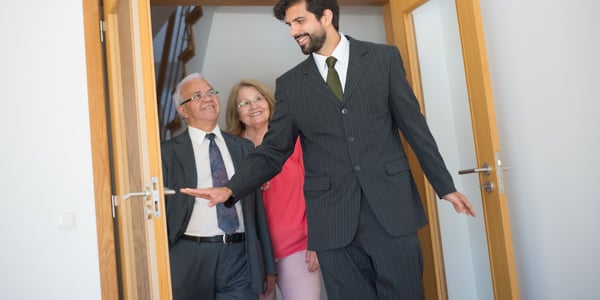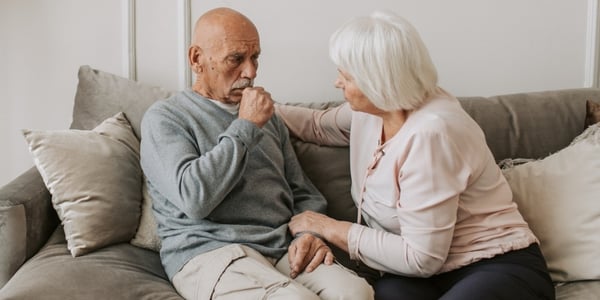Choosing to move to an assisted living, skilled nursing, or memory care setting is one of the most...
Senior Living Communities: Boosting Senior Residents Mentally
Socialization is one of life's constant needs. It builds connections, communities, and a sense of belongingness. Like food and water, social interactions keep you healthy and help you survive. Humans are social beings who thrive in supportive and social environments. However, as one ages, social isolation begins creeping in. Disconnection from social surroundings takes a toll on mental health, especially in older people. Senior living communities create a safe and secure environment, ensuring socialization.
According to The State of Mental Health and Aging in America, people over 55 experience debilitating mental health. They can become anxious and depressed, experience mood swings, and exhibit cognitive dissonance signs. In addition, not getting enough social exposure increases depressive episodes. It causes immense stress and affects physical well-being. Unfortunately, despite mental health awareness efforts, the mental state of older adults is severely under-reported and neglected.
Senior living communities build a safe space for older adults. They prevent social isolation and give them a new life purpose, thus supporting them mentally and emotionally. Well-connected networks, caring staff, and safe surroundings allow senior citizens to form human bonds and maintain thriving social lives. Loneliness causes internal sufferings—senior living communities leave no room for that.
Why Does Loneliness Need a Cure?
In addition to destabilizing mental health, loneliness worsens health conditions. Whether living at home with their family or alone, they tend to feel lonely and, sometimes, like a burden. According to Forbes, isolation leads to more severe health problems than a poor lifestyle. Another report claims that lack of socialization can be fatal and affect mortality levels.
Therefore, for aging citizens, socialization combats loneliness. There are multiple ways of treating loneliness in older adults, and living in senior community housing is incredibly effective.
Benefits of Social Communities for Seniors
Everyone needs a safe social circle—social housing is the key to building a comfortable and secure environment for older adults.
Social Living Communities Give a Sense of Belongingness
Older adults spend their years interacting with different parts of society. They live in stages, from growing up and making friends to getting married and raising children. They also build close-knit groups among themselves, such as knitting clubs or sports organizations. Either way, they have always had a place and a purpose. However, growing up gives them a feeling of disconnection from people and hobbies. Senior communities remedy this.
Living in senior communities reignites connections and interactions. They help senior citizens create new experiences and memories. Instead of succumbing to loneliness and depression, these spaces eliminate isolation. Community homes allow them to forge new relationships, embrace new opportunities, and partake in inclusive and joyful activities.
A Safe Environment
Aging paves the way for new fears and challenges. As you grow, your body experiences changes; it becomes weak, you face physical limitations, and your mental health deteriorates. Even performing basic daily chores becomes tiring and overwhelming, resulting in a feeling of helplessness. Older adults face various challenges, such as forgetting to take medication, losing balance, or requiring constant assistance. Furthermore, senior citizens living alone also fear break-ins.
Senior living communities minimize this mental turmoil. While feeling safe and secure is a state of mind, senior homes create a familiar environment that relaxes them. Staff members at senior communities ensure residents take proper and timely medication, monitor entrances, prevent unauthorized visits, provide transportation systems, and build an accessible and friendly space.
A New Way of Living
Throughout your life, you walk in different shoes. You are a friend, sibling, parent, and colleague. Every role gives you a new objective to fulfill, empowering and encouraging you to live to the fullest. Without a fixed routine or direction, they often feel isolated, anxious, and depressed. However, every day is a new beginning in senior communities. They introduce senior residents to various activities, allowing them to explore new interests and find a new purpose.
Socialization
Living alone fills one with a sense of independence. However, being left to your own devices as you age limits social interactions. It makes daily activities inaccessible, pushing you into a vicious cycle of isolation and monotony. Senior living communities create ample opportunities to form new connections with fellow residents, share memories and create new ones, and participate in common hobbies. Older adults can partake in various activities together, such as gaming, crafting, painting, working out, enjoying movies, and cooking.
Some living communities are pet-friendly, allowing senior residents to bond with their furry friends. After all, animals shower you with unconditional and the purest form of love, instantly boosting your mental health.
Wrapping Up
For seniors, socialization is as essential as a balanced diet. It recharges them, nourishes their mind, and rejuvenates their senses. Prioritizing their mental health ensures their safety and happiness; it helps them live comfortably. Senior living communities shower your aging loved ones with support and security. They prevent them from feeling isolated and give them a new direction. They need love and a social community—senior housing gives them that space.







